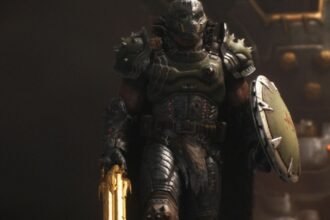[Notice: This article contains complete spoilers for Clair Obscur: Expedition 33.
Clair Obscur: Expedition 33 has been at the forefront of my thoughts lately, and I suspect it has been on yours as well, even if you haven’t played it. This game has dominated the gaming community for over a month, selling 3.3 million copies in just 33 days, and it shows no signs of slowing down. It’s a pleasure to play, and I’ve found just as much joy in watching my partner experience it as I did during my own journey—I am eagerly anticipating its film adaptation.
After investing around 45 hours into completing Clair Obscur‘s main storyline, I wasn’t ready to say goodbye. Rather than diving straight into the extensive post-game content, I chose to watch my partner start the game from the beginning, and it proved to be an equally stunning and gripping experience. The emotional high points resonate just as strongly—if not more so, knowing what lies ahead—during a second playthrough.
I intended to dedicate a larger portion of my Memorial Day weekend to exploring the new (and free!) DLC for Sea of Stars, but I found myself drawn back into the world of Clair Obscur. Instead of engaging with Valere and Zale’s new circus-themed powers in Sea of Stars, I was captivated by the breathtaking cutscenes of Clair Obscur playing right before me. Apologies to Sea of Stars, but I just can’t tear myself away from Gustave, who bears a striking resemblance to Robert Pattinson!
As I approached the end of Act 1, the unmistakable sound of Renoir’s walking stick echoed through the room, intensifying the knot in my stomach, knowing the fate that awaited Gustave. We barely have time to process Gustave’s tragedy after his confrontation with Renoir before Verso makes his entrance. Everything about his dialogue, character interactions, and subsequent cutscenes gains depth with the knowledge of his true nature.
Verso arrives *just* too late to save Gustave, but on a second viewing, we realize that his admission to Maelle in Act 3—claiming he intentionally let Gustave die—makes the already heart-wrenching death scene even more agonizing. Later, at camp, he and his friend Esquie reunite after years apart. “Maman’s the word,” Esquie comments after Verso inquires if he revealed the secret that Verso is a painted replica of Renoir and the Paintress’ deceased son. Knowing that the empathetic figure was also hiding truths from the expeditioners felt like a betrayal. One deceitful character stings, but discovering two hurts profoundly.
Let’s face it: Verso is both a betrayer and a liar—a deceptive one, at that. However, I can’t wholly fault him. After witnessing his ending and understanding the depths of his desire to die, his betrayals throughout Acts 2 and 3 become clearer. Each interaction with Esquie and Monoco (his childhood stuffed animal brought to life!)









